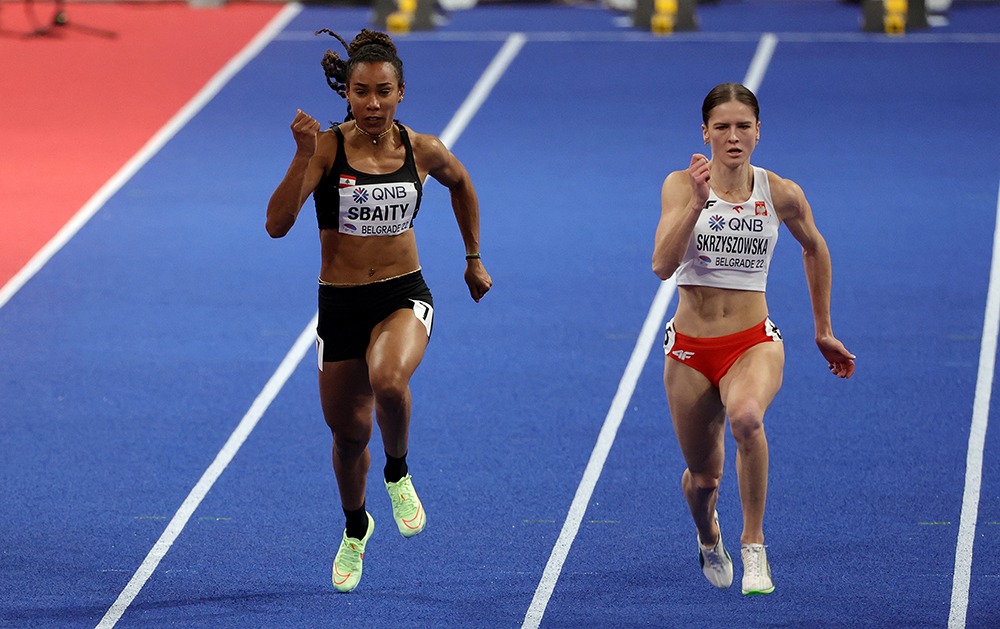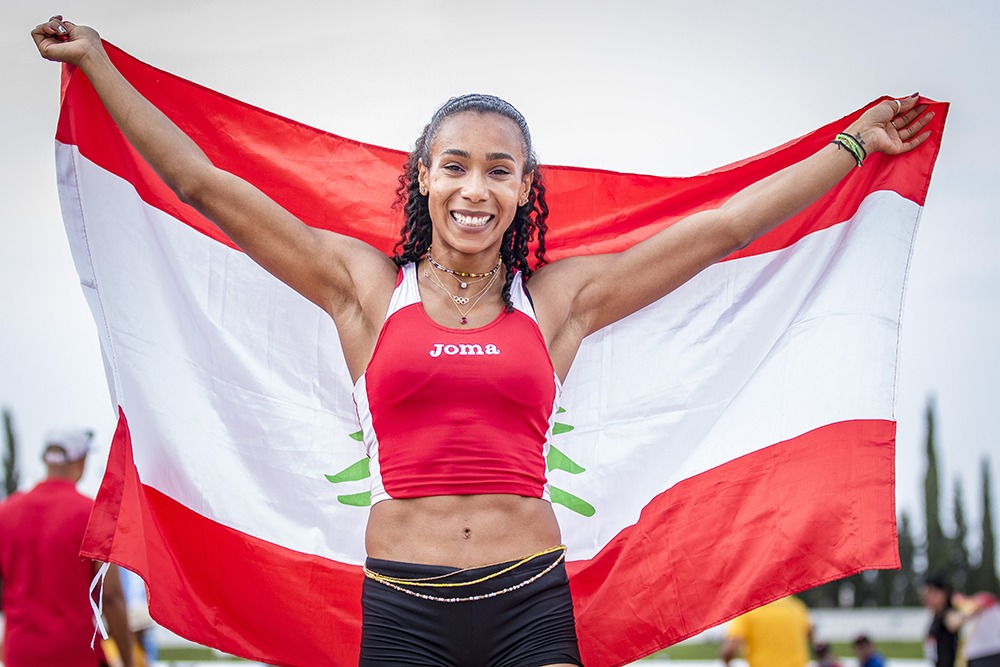It’s hard to keep up with Aziza Sbaity. Not only is she an extremely dynamic, vivacious and charismatic individual, she is also one of Lebanon’s most accomplished athletes. We caught up with her off track to find out more about being Lebanon’s star sprinter, the importance of remaining humble, why she loves Lebanon and what it’s like representing her homeland on the international sports circuit.
What can you tell us about your athletics career and being named the fastest woman in Lebanese history?
My journey has been a crazy process of growth. What started out as a hobby and a talent that my school discovered turned into a passion and my identity. In 2018, nine years after I started training, I broke the 100-meter national record, which is how I was given the title of the fastest woman in Lebanese history.

How did it feel to be recognized among the 100 most influential and inspirational women of 2023 by the BBC?
It was a surreal feeling, to say the least. I hadn’t imagined being considered for such an accolade. Although it was never a goal of mine to be recognized in this way, when I realized that my impact on society had put me on a par with women like Michele Obama and Amal Clooney, I was overjoyed. I am grateful for the platform that track and field has given me and the way in which it has allowed me to be a positive voice for Lebanon and the Lebanese people.
Who is your female idol and why?
It’s unfortunate to say that I don’t have a female idol anymore. As I have grown up, I have realized that people are very different in their values. While I may have admired certain women in the past, their views on important topics such as human rights, particularly in the Middle East, have altered my overall opinion of them.

Srdjan Stevanovic/Getty Images for World Athletics
What has been the greatest challenge in reaching where you are today?
It is not easy to become a professional athlete in Lebanon due to the little support we receive. Indeed, sports is not considered a profession, and there’s no financial help from the government, the sports ministry, the federation or the Olympics committee. As sportspeople, we need to depend upon ourselves and count on private sponsors to achieve our goals. In 2018, I decided to leave my job and focus on track. Unlike the big budgets of basketball and football, the athletics scene is underrated and underpromoted, so it is very hard to win gold for Lebanon when other countries are investing much more in this discipline.
If you weren’t a professional sprinter, what would you be doing?
If I had to choose another sport, it would be boxing. However, if I were to change profession entirely, I think a career in psychology is what I would pursue. I like to analyze people’s motives and behavior.

What’s your favorite thing about Lebanon and what do you miss most when you are away from home?
I love so many things about Lebanon: its people, food and nature. The country is achingly beautiful. When friends come to visit, they are amazed by what they see. At times that I’m away from home, the cuisine is what I truly miss.
How do you relax in your free time?
Brunches are definitely my weakness! I really enjoy going out during the day and discovering new coffeeshops and cafes. Relaxing at home and watching Netflix is another way I like to unwind.

What do you hope to achieve in 2024?
There is only one thing I want to achieve in 2024 and that’s making it to the Olympics in Paris.
_________________________________________________________________________________
If you enjoyed reading this, check out our exclusive interview with basketball powerhouse Aida Bakhos.
Loading
